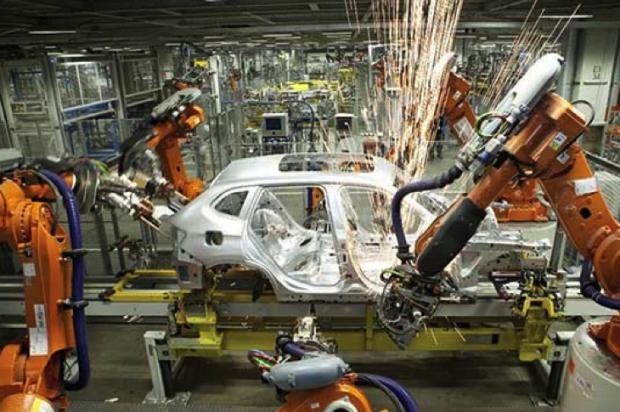
Breaking News
 Doug Casey on the Death of Privacy… and What Comes Next
Doug Casey on the Death of Privacy… and What Comes Next
 The Idiocy of Using a $200 Billion Navy to Enforce a 140× Cocaine Premium
The Idiocy of Using a $200 Billion Navy to Enforce a 140× Cocaine Premium
 #608: The First Half of the Decade
#608: The First Half of the Decade
Top Tech News
 Kawasaki's four-legged robot-horse vehicle is going into production
Kawasaki's four-legged robot-horse vehicle is going into production
 The First Production All-Solid-State Battery Is Here, And It Promises 5-Minute Charging
The First Production All-Solid-State Battery Is Here, And It Promises 5-Minute Charging
 See inside the tech-topia cities billionaires are betting big on developing...
See inside the tech-topia cities billionaires are betting big on developing...
 Storage doesn't get much cheaper than this
Storage doesn't get much cheaper than this
 Laser weapons go mobile on US Army small vehicles
Laser weapons go mobile on US Army small vehicles
 EngineAI T800: Born to Disrupt! #EngineAI #robotics #newtechnology #newproduct
EngineAI T800: Born to Disrupt! #EngineAI #robotics #newtechnology #newproduct
 This Silicon Anode Breakthrough Could Mark A Turning Point For EV Batteries [Update]
This Silicon Anode Breakthrough Could Mark A Turning Point For EV Batteries [Update]
 Travel gadget promises to dry and iron your clothes – totally hands-free
Travel gadget promises to dry and iron your clothes – totally hands-free
 Perfect Aircrete, Kitchen Ingredients.
Perfect Aircrete, Kitchen Ingredients.
 Futuristic pixel-raising display lets you feel what's onscreen
Futuristic pixel-raising display lets you feel what's onscreen
Chinese Factory Replaces 90% Of Human Workers With Robots, Sees 250% Production Increase

One of China's first unmanned factories in the city of Dongguan recently replaced 590 of its workers with robots and the results were astounding. While the factory used to be run by 650 employees, only 60 of those people still work at the factory and their primary job is to make sure the machines are running properly, not working on manufacturing.
The Changying Precision Technology Company focuses on the production of mobile phones and uses automated production lines. The robotic arms produce certain parts of the mobile phones at each station and the factory even makes use of autonomous transport trucks.
Though 60 is a shocking amount of people to be running and monitoring a whole factory, the trial for the robots is going so well that the general manager, Luo Weiqiang, said that the number of human employees may even drop to 20 someday.
Since the shift to robots, pieces per person per month has risen from 8,000 to 21,000—a whopping 250% increase. While some may argue that quality of the product will decrease with the use of robots, this doesn't appear to be the case either. The number of product defects has decreased from 25% to just 5%.

 A Put Up Or Shut Up Moment
A Put Up Or Shut Up Moment

